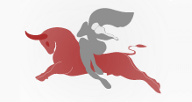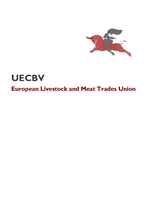AEMB
| Rural development in the CAP post 2020 - UECBV Press release |
19 February 2020


Europe's rural areas and rural communities face existential threats due to rural exodus. An increasing urban-rural divide and cutting this financial lifeline would make this situation even direr. UECBV and AEMB supported the Rural Coalition and Coalition of European Agriregions deeming the recently proposed cut to rural development funding to be unacceptable and call on the policy-makers to review this approach ahead of the summit on 20th February 2020. The two groups that gather organisations representing rural actors and regions in the EU highlighted this today during the “Amplifying local voices: Addressing rural development in the CAP post 2020” event at the Representation of the Free State of Bavaria to the EU in Brussels.
Hosted by MEPs Simone Schmiedtbauer (EPP, AT), Paolo De Castro (S&D, IT) and Jérémy Decerle (Renew Europe, FR), the event brought together representatives of rural local actors – farmers, forest owners, rural value chain actors, landowners, hunters and regional authorities – as well as EU decision-makers and representatives from civil society organisations. The Rural Coalition and Coalition of European Agriregions further outlined their requests in an open letter published today.
Speakers drew attention to the importance of involving rural actors and local authorities in policy-making processes in order to develop successful bottom-up and community-led interventions tailored to local needs. The importance of creating synergies between EU rural development funds and the sustainable and active management of rural areas was highlighted. This is required to guarantee the long-term viability of Europe's rural areas, including generational renewal, and to address major challenges.
Benoit Cassart, Member of UECBV Board and Secretary General of the “Fédération Nationale du Commerce du Bétail (FNCB, BE), took the floor stressing first, that this event made clear, that agriculture and peasants are threatened. Unfortunately, they are not the only ones: With them, these are whole agrifood chains which are likely to disappear in the short term. And yet, the image of the livestock and meat sector has been so broken that it is discouragement that has settled to the point that the shortage of labour today constitutes an additional threat to the maintenance of the activities of related companies to the meat sector. Therefore recruiting activities involve significant costs for companies, but they are less and less successful in finding workers. Automation and robotisation are not always a solution: If automation is possible for certain tasks (packaging, packaging, loading), the reality is that meat processing is a labour-intensive sector. Automation does not solve the problem of boning the carcass in a multitude of different cuts. European processors are not large enough to make large-scale technological investments, and the incoming raw materials are not uniform according to breed and fattening state. Given the lack of availability of this workforce at national or European level, we need acceptance and orientation at European level to bring people from outside Europe who are ready to work in such functions where we must prepare young Europeans, thanks to appropriate training, for this new challenge.
“Another problem is the breaking point that our industry is facing: On the one hand, the societal requirements are constantly increasing in relation to the way in which the meat is produced on our premises and on the other hand, Europe opts for the opening of its market, which pushes the price down. This double reality makes it impossible for our industry to survive, sandwiched between high production costs and too low selling prices. European citizens, through their political leaders, must make clear choices, taking into account the fact that respect for the environment, animal welfare and consumer health has a cost that must be borne.”
Heinz Osterloh, Vice-President of UECBV and President of the German “Bundesverbandes für Vieh und Fleisch”, made clear in background information with examples that animal husbandry is essential for jobs in rural areas. The sector faces the bad image of just dirt, smell, animals and hard work. He stressed that “The facts you cannot change – but the image in public view can be and has to be changed to reality: because there is no life without livestock”. For example, 22 million cattle, sheep, pigs and horses are traded on livestock markets every year. By their nature and their function, livestock are major economic players in a market-driven economy representing around 230,000 direct jobs and due to family works nearly half a million workers mainly in rural areas of Europe. “If people want to have regionality as first choice, there must the corresponding framework conditions be maintained and partly redesigned to meet for instance the transport requirements”, Heinz Osterloh highlighted.
UECBV insists that these specific aspects have to be taken into account in an appropriate and partly creative way in the Green Deal discussion and the Farm-to-Fork-strategy which has just started and where the sector is available for developing solutions.
ENDS
For the press release in pdf: Click HERE
For further information:
Karsten Maier, Secretary General
Tel: + 32 2 230 46 03
Email: info@uecbv.eu
Hosted by MEPs Simone Schmiedtbauer (EPP, AT), Paolo De Castro (S&D, IT) and Jérémy Decerle (Renew Europe, FR), the event brought together representatives of rural local actors – farmers, forest owners, rural value chain actors, landowners, hunters and regional authorities – as well as EU decision-makers and representatives from civil society organisations. The Rural Coalition and Coalition of European Agriregions further outlined their requests in an open letter published today.
Speakers drew attention to the importance of involving rural actors and local authorities in policy-making processes in order to develop successful bottom-up and community-led interventions tailored to local needs. The importance of creating synergies between EU rural development funds and the sustainable and active management of rural areas was highlighted. This is required to guarantee the long-term viability of Europe's rural areas, including generational renewal, and to address major challenges.
Benoit Cassart, Member of UECBV Board and Secretary General of the “Fédération Nationale du Commerce du Bétail (FNCB, BE), took the floor stressing first, that this event made clear, that agriculture and peasants are threatened. Unfortunately, they are not the only ones: With them, these are whole agrifood chains which are likely to disappear in the short term. And yet, the image of the livestock and meat sector has been so broken that it is discouragement that has settled to the point that the shortage of labour today constitutes an additional threat to the maintenance of the activities of related companies to the meat sector. Therefore recruiting activities involve significant costs for companies, but they are less and less successful in finding workers. Automation and robotisation are not always a solution: If automation is possible for certain tasks (packaging, packaging, loading), the reality is that meat processing is a labour-intensive sector. Automation does not solve the problem of boning the carcass in a multitude of different cuts. European processors are not large enough to make large-scale technological investments, and the incoming raw materials are not uniform according to breed and fattening state. Given the lack of availability of this workforce at national or European level, we need acceptance and orientation at European level to bring people from outside Europe who are ready to work in such functions where we must prepare young Europeans, thanks to appropriate training, for this new challenge.
“Another problem is the breaking point that our industry is facing: On the one hand, the societal requirements are constantly increasing in relation to the way in which the meat is produced on our premises and on the other hand, Europe opts for the opening of its market, which pushes the price down. This double reality makes it impossible for our industry to survive, sandwiched between high production costs and too low selling prices. European citizens, through their political leaders, must make clear choices, taking into account the fact that respect for the environment, animal welfare and consumer health has a cost that must be borne.”
Heinz Osterloh, Vice-President of UECBV and President of the German “Bundesverbandes für Vieh und Fleisch”, made clear in background information with examples that animal husbandry is essential for jobs in rural areas. The sector faces the bad image of just dirt, smell, animals and hard work. He stressed that “The facts you cannot change – but the image in public view can be and has to be changed to reality: because there is no life without livestock”. For example, 22 million cattle, sheep, pigs and horses are traded on livestock markets every year. By their nature and their function, livestock are major economic players in a market-driven economy representing around 230,000 direct jobs and due to family works nearly half a million workers mainly in rural areas of Europe. “If people want to have regionality as first choice, there must the corresponding framework conditions be maintained and partly redesigned to meet for instance the transport requirements”, Heinz Osterloh highlighted.
UECBV insists that these specific aspects have to be taken into account in an appropriate and partly creative way in the Green Deal discussion and the Farm-to-Fork-strategy which has just started and where the sector is available for developing solutions.
ENDS
For the press release in pdf: Click HERE
For further information:
Karsten Maier, Secretary General
Tel: + 32 2 230 46 03
Email: info@uecbv.eu

